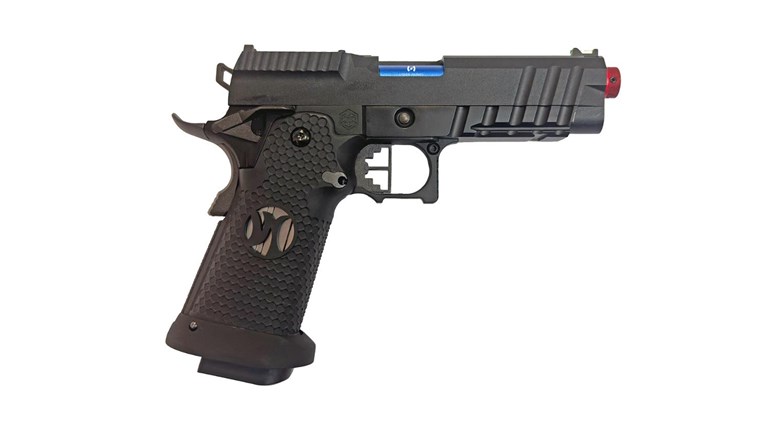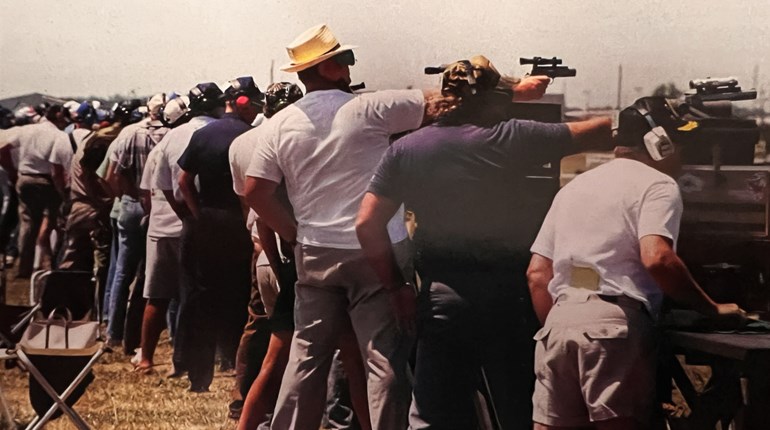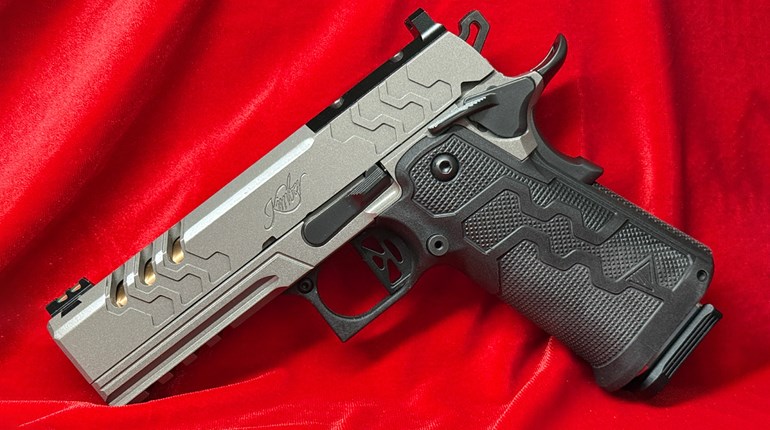
A shooting diary may also be known as, or referred to by some as a data book, shooting log, shooting notes, shooting journal or shooting notebook. No matter what it's called, a shooting diary serves one major purpose: It provides a detailed record of your competitive shooting experiences. Every shooting event is slightly different, and we all learn something new each time we compete. It may be something as simple as a slightly different hold point or stance that enhances your performance, or the observation that you don't shoot well after a big meal.
The problem is that most of us forget a lot of what we learned long before the next shoot, especially if it happens to be something subtle. This is where the shooting diary becomes a valuable resource. By getting our recollections down on paper as soon as possible, we can capture the subtle things that we've learned during the shoot and preserve them for future analysis and shooting improvement. I've been keeping a shooting diary for more than 10 years and have found it to be and extremely helpful endeavor.
Many competitive shooters never start a shooting diary because they aren't sure how to go about it, what specifically to record in it or how to utilize it to improve their scores.
A shooting diary does not have to be anything elaborate to be effective. It's probably best to keep it in some kind of notebook so that it is easier to find and keep organized. There are, in fact, several commercially available shooting diaries designed for each particular shooting sport. They generally consist of a set of pre-printed forms bound in some type of notebook. Savvy competitive shooters can also look for an app for their smartphone, or keep a shooting diary on a computer or tablet.
The information you record in your diary will only be useful if you write down your impressions and observations after each meet. Over time, as you begin to analyze the information recorded in your diary, you will note various trends, habits, tendencies and other aspects of your shooting. If recognized, these can be used to improve your shooting. However, to recognize these items you must have a record of your observations over a number of shoots.
Some shooters keep their diaries with their shooting gear. I keep my diary with my gun cleaning equipment. I record my observations on each shoot as soon as I finish cleaning my guns.
The shooting diary is your tool for improvement, so record whatever you think might be useful. I would suggest that you keep things fairly simple, since you're probably not going to feel like writing a dissertation at the end of every match. It's probably also not a good idea to think too much about what you're going to write in your diary during the actual shooting competition, since you'll need to focus all of your concentration on the event. Perhaps a shooting buddy can watch and take some notes for you while you're actually competing.
If you've been consistently recording information in your diary, you'll begin to see various comments and opinions about your shooting repeated in your notes. These comments and opinions may be positive or negative. Those practices that drew the positive comments should be continued, since they generally improve your scores. Negative comments become opportunities for improvement. The shooting idiosyncrasies that you've recorded have been there all along, but without a shooting diary they are generally hard to pinpoint.
For example, from a study of my diary I've found that I shoot best relatively early in the morning and especially when I've eaten a good breakfast. If I skip breakfast, I tend to get hungry and my concentration fades somewhere around 11 a.m. Knowing this has allowed me to do a better job of preparing for competition, but I probably wouldn't have noticed it without a review of all my diary entries over a several-month period.
When I've talked to competitive shooters, range operators and gun club managers about shooting diaries, many said they've noticed a lot of the veteran shooters keep them, but alas, many newcomers do not.
What do you put in a diary?
Some of the information you'll want to include in your diary depends on your particular form of competitive shooting, although as we will see, there is a lot of diary information that is common to all shooting sports. For starters, I suggest that your shooting diary include the following items:
- Date, time and name of the shoot.
- Location of the event (name of club or range, nearest town, etc.).
- Weather conditions (temperature, wind speed, wind direction, sunny, cloudy, humid, etc.).
- Gun and load used.
- Events in which you participated.
- Scores (yours and others).
In my log I also like to write a short summary of the shoot. This includes some of my general impressions during the event, as well as an indication of how I generally felt (tired, headache, etc.) and how this might have affected my scores. I might note the names of other shooters I met for the first time, and if something particularly special or unique occurred during the meet, I would record that as well.



































